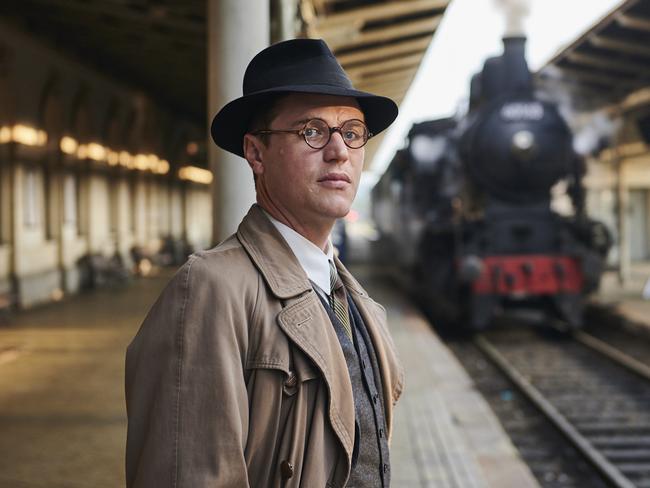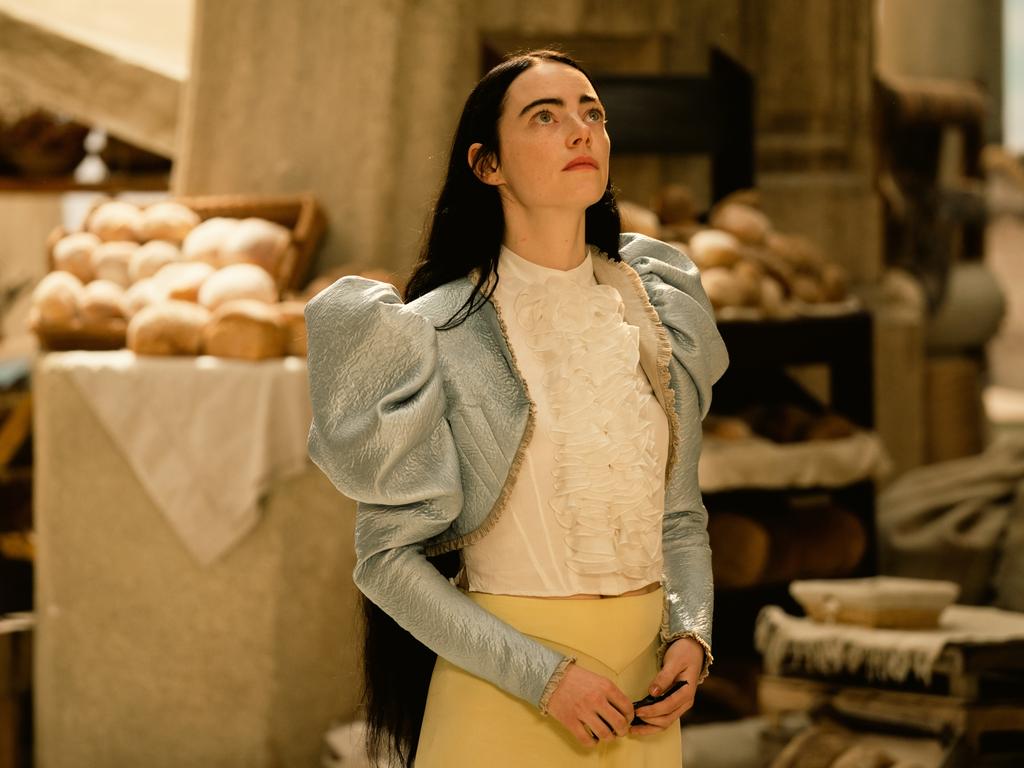One Life review: Moving tribute to man who saved Jewish children in WWII
Anthony Hopkins plays an English stockbroker who sees cold and hungry children huddled in camps - and decides to do something.

One Life (PG)
110 minutes
In cinemas
★★★½
The biographical drama One Life, starring Anthony Hopkins and Johnny Flynn as the same character, 50 years apart, goes to the heart of the observation made by the 19th century English philosopher and politician John Stuart Mill: “Bad men need nothing more to compass their ends than that good men should look on and do nothing.”
The good man at the centre of this movie is the English stockbroker Nicholas Winton (1909-2015), who is of German and Jewish background but calls himself a European and an agnostic. The bad man is Adolf Hitler.
In 1938-39, in the lead up to World War II, Flynn plays Winton. In 1989, a half-century later, Hopkins takes over. Each actor delivers a brilliant performance in a true story that is full of courage, kindness, sadness, doubt and regret.
Hopkins reminds us why he has two best actor Oscars on the mantelpiece. The film opens with 80-year-old Winton living in the English town of Maidenhead with his wife Grete (Lena Olin).
He looks to be comfortably retired yet at the same time seems vaguely troubled. When his wife casts an eye over his jam-packed study, spilling over with boxes of papers, she tells him, “Please Nicky, you have to let go.”
We cut to London in 1938 and Winton the stockbroker reading the headlines about the German army marching into Czechoslovakia. “I have to do something,’’ he tells his mother Babi (Helena Bonham-Carter). “I can’t just sit here reading about it. These people need help.”
He flies to wintry Prague and what he sees – children huddled in camps - cold, hungry, frightened – is something he cannot unsee. He joins the fledgling British Committee for Refugees from Czechoslovakia and commits to starting a Kindertransport program: sending the children to England by train.
At the outset, he has 1000 children on his list. He is told there are many, many more. These numbers go to his state of mind 50 years later, as Hopkins superbly shows in some heart-rending moments.
In 1939, Winton’s non-nonsense mother, who becomes instrumental in the rescue program, says to him, “Nicky you must know we can not save them all. You have to forgive yourself that.”
Fifty years later Winton lunches with Martin Blake (Jonathan Pryce), a friend from the Prague days. “You’ve done enough,’’ Blake, who went on to be a Labour MP, gently tells him. Winton looks up and replies, “It’s never enough, is it?”
Back in 1938, Winton and his colleagues need to raise money, deal with English bureaucrats and find foster homes. “Ordinary people wouldn’t stand for this if they actually knew what’s happening,’’ he says.
He says he is an ordinary person. He colleagues, all volunteers, agree they are too. The result, as Trevor Chadwick (an excellent Alex Sharp) puts it, is “an army of the ordinary”.
Over 1938-39, Winton and his fellow humanitarians ended up organising eight trains from Prague to Liverpool. The final one was due to depart on September 1, 1939, the day Germany invaded Poland.
This is a straightforward biographical drama and there’s nothing wrong with that. Sometimes it’s enough just to show what happened. It’s elevated by the strong performances and by the skilful juxtaposition of the two timelines.
The conclusion, which involves Winton going on the BBC television program That’s Life!, is beautiful and goes to the meaning of the title. Winton’s mother was right that it was impossible to save them all, but saving just one life can allow other lives to come into being.
This film is directed by James Hawes, whose TV credits include The Bill and Dr Who, and written by Lucinda Coxon and Nick Drake. It is a fine, timely study of one of the many people during the war who looked on and decided to do something.






To join the conversation, please log in. Don't have an account? Register
Join the conversation, you are commenting as Logout